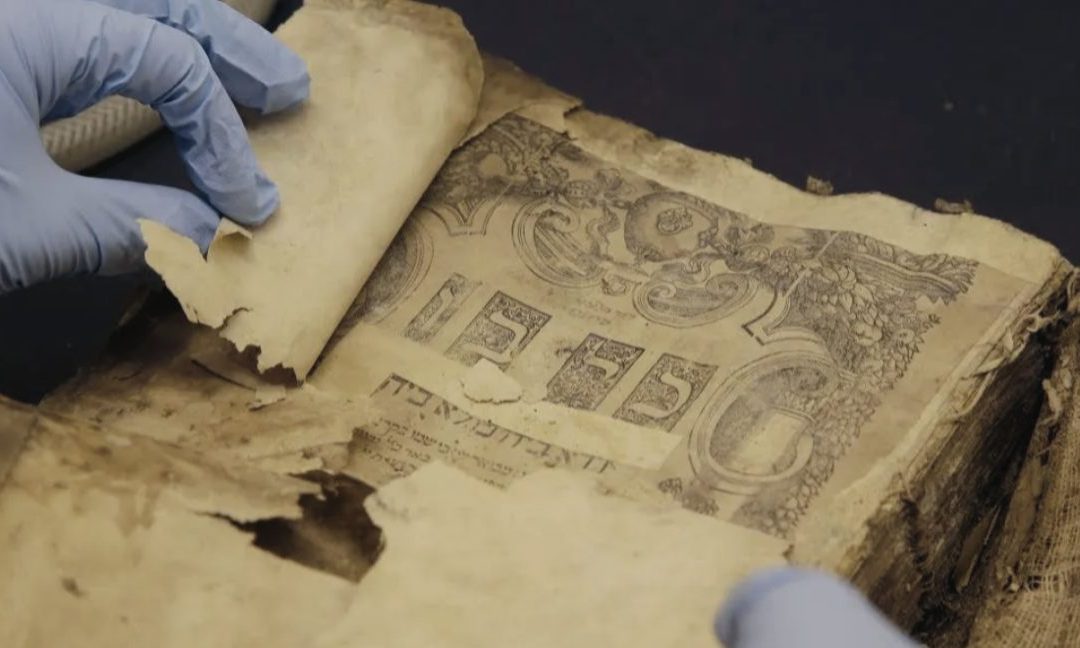The latest news on the repatriation front is that the United States is working on a plan to send a major archive back to Iraq.
Shafaq News reports: “Minister Ahmed Fakkak Al-Badrani told Shafaq News that the Iraqi government is maintaining “continuous coordination and diplomatic engagement with US authorities to secure the archive’s return,” adding that joint committees involving Iraq’s security agencies, the Ministry of Tourism and Antiquities, and the Ministry of Foreign Affairs are working in coordination with the US Embassy in Baghdad to follow up this issue.
If that all sounds straightforward, it isn’t, and the reason is that the archive in question is the Jewish Archive currently kept in Washington.
It includes thousands of historical documents, religious texts, and personal records belonging to Iraq’s Jewish community: Torah scrolls, rare manuscripts dating back to the 16th century, a 400-year-old Hebrew prayer book, a 200-year-old Talmud volume, a 1902 Passover prayer book (Haggadah), and French-language prayer texts from 1930.
“It also features printed sermons from a German rabbi dating to 1692, along with school records spanning 1920–1975,” reports Shafaq News.
Also known as the Iraqi Mukhabarat Archive, it came to light in 2003 when a 26-member US “Alpha” unit operating in the country found it in the basement of Iraq’s former intelligence headquarters during a search for evidence of mass destruction weapons.
Seen as an important repository of information about the Jewish community that flourished in Iraq for 2,500 years, the repatriations would seem a fitting solution… except for the fact that almost all the Jews fled Iraq in the mid-20th century after being stripped of their citizenship and assets. The archive was in the basement because it had been stored there after being seized by the authorities.
In light of this, one can understand the calls from scholars and Jewish groups who have said that the US should instead send the archive to Israel.
Unanimous Senate vote started the process
Nonetheless, a unanimous Senate vote of 2014 passed a resolution calling on then President Barack Obama to reopen new negotiations on returning the archive to Iraq. Pending the outcome of those talks, it was agreed that the archive would remain in place until 2018, after which a further delay was set in place.
The US appears to think it has a contractual obligation to send the archive to Iraq, but not everyone agrees.
Back in 2013, Stanley Urman, executive vice president of Justice for Jews from Arab Countries (JJAC), cited“jus ex injuria non oritur”, a legal principle in international law arguing that a state cannot assert legal rights to property it has obtained illegally.
“[The materials] were seized from Jewish institutions, schools and the community,” he explained. “There is no justification or logic in sending these Jewish archives back to Iraq, a place that has virtually no Jews, no interest in Jewish heritage and no accessibility to Jewish scholars.”
Whichever way you look at the issue, the whole concept of repatriation is based on a sense of restorative justice, a common theme among all the speeches and media releases that accompany returns from the US via bilateral agreements and other mechanisms.
As with the recent return of Tibetan artefacts to the occupying forces of China, the idea of sending the Jewish archives back to the country that persecuted and effectively expunged its Jewish population is no less than an insult to the oppressed and a reward for oppression. The US needs to review its shameful policy now.


Recent Comments